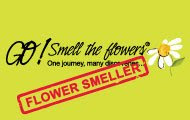
Terra Incognita has given me the Arte y Pico Award...which I feel really guilty about accepting considering what a lousy posting job I've done over the past week or so...but that's just my insecurities babbling inanely, so pay no attention...and thank you, Terra!
“This award is given based on creativity, design, interesting material, and overall contribution to the blogging community.
"Here are the rules:
1) Choose 5 blogs that you consider deserving of this award based on creativity, design, interesting material, and overall contribution to the blogger community, regardless of the language.
2) Post the name of the author and a link to his or her blog so everyone can view it.
3) Each award-winner has to show the award and put the name and link to the blog that has given her or him the award.
4) The award-winner and the presenter should post the link of the Arte y Pico blog, so everyone will know the origin of this award.
5) Please post these rules."
The five blogs I would like to present this award to are:
Create and Live Happy: Hanna blogs about all of her creative endeavours. She has lots of intriguing pictures on her site, and is always trying something new. I've read about art journaling, glass fusing, quilting, crochet, and making your own fancy papers on her site, along with a lot of other intriguing things. If you're looking for artsy-craftsy inspiration, this is a great blog to visit.
A Therapist With Bipolar: Annie writes beautifully about her connection with nature and how it helps her deal with her illness. For some beautiful and insightful writing, pay her a visit. You'll be glad you did!
Joyously Becoming: Katie is an artist/photographer and her blog has lots of interesting pictures of all of her creations. She writes beautifully about her art and her life.
Beyond Meds: Gianna is truly an artist in the way she is handling and writing about her own recovery from being seriously overmedicated on psych meds. Her journey is fascinating and heartening, and her writing speaks of so much hope for anyone who is finding their own path through the maze of psychiatric recovery.
Superlative in All Things: Superlagirl usually manages to make me laugh...and if she doesn't make me laugh, she makes me think. I really enjoy her blog...her writing is awesome, and she has a truly snarky side that I can really relate to.
The five blogs I would like to present this award to are:
Create and Live Happy: Hanna blogs about all of her creative endeavours. She has lots of intriguing pictures on her site, and is always trying something new. I've read about art journaling, glass fusing, quilting, crochet, and making your own fancy papers on her site, along with a lot of other intriguing things. If you're looking for artsy-craftsy inspiration, this is a great blog to visit.
A Therapist With Bipolar: Annie writes beautifully about her connection with nature and how it helps her deal with her illness. For some beautiful and insightful writing, pay her a visit. You'll be glad you did!
Joyously Becoming: Katie is an artist/photographer and her blog has lots of interesting pictures of all of her creations. She writes beautifully about her art and her life.
Beyond Meds: Gianna is truly an artist in the way she is handling and writing about her own recovery from being seriously overmedicated on psych meds. Her journey is fascinating and heartening, and her writing speaks of so much hope for anyone who is finding their own path through the maze of psychiatric recovery.
Superlative in All Things: Superlagirl usually manages to make me laugh...and if she doesn't make me laugh, she makes me think. I really enjoy her blog...her writing is awesome, and she has a truly snarky side that I can really relate to.




